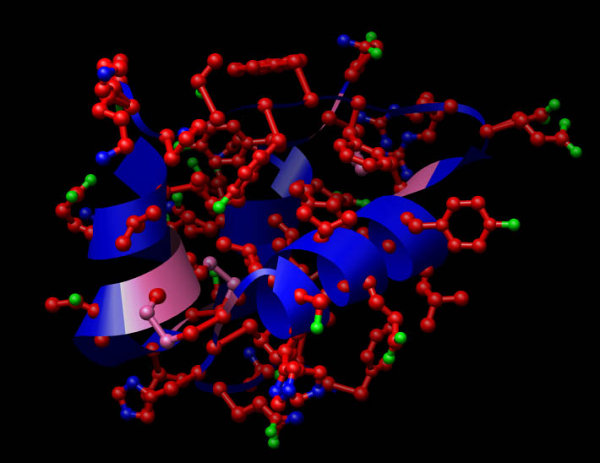New insights into type 1 diabetes risk

A large international collaboration of European scientists has uncovered a gene network underlying type 1 diabetes risk. Furthermore, the scientists identified a key receptor which regulates this important genetic framework.
The study employs a multipronged approach that uses genetic as well as gene expression data from different species to suggest that the innate viral response pathway and immune cells called macrophages are involved in the development of type 1 diabetes.
The study is led by Norbert Hübner, from the Max-Delbrück-Centrum für Molekulare Medizin (MDC) in Berlin-Buch, Germany, and Stuart Cook, from Imperial College London, UK.
“The work published by this international team demonstrates the immense value of large datasets, generated by international collaborations, which may be used in many differing areas of common diseases; namely coronary artery disease and type 1 diabetes in this instance.”
Dr Kate Rice from the Wellcome Trust Sanger Institute
Dr Kate Rice contributed to this work together with Dr Willem Ouwehand From the Department of Haematology at the University of Cambridge and honorary Faculty at the Sanger Institute.
Type 1 diabetes is a metabolic disorder characterised by high blood sugar levels. It is caused when the insulin-producing pancreatic beta cells are attacked and destroyed by the body’s own immune system. Without regular insulin injections, type 1 diabetes is fatal. The exact cause is unknown, but it is thought that viral or environmental triggers, and a genetic susceptibility are major determinants of development of the disease.
“In recent years a multiplicity of risk genes has been discovered which play an important role in the development of various diseases. Despite this, though, the molecular mechanism that influences the onset of the diseases has not yet been fully understood. We have identified a transcription factor which controls a gene network in which a well known Diabetes mellitus type 1 risk gene occurs.”
Professor Dr Norbert Hübner, a leader of this currently published study, from the Max-Delbrück-Centrum für Molekulare Medizin (MDC)
Transcription factors play a major role in regulating gene expression by binding to specific target sequences close to the gene of interest. Importantly, a transcription factor often regulates not only one gene but whole gene networks.
“Further analysis of the data revealed that the IDIN (interferon regulatory factor 7 (IRF71)-driven inflammatory network) gene essentially influences Diabetes mellitus type 1 risk via the receptor EBI2, which regulates IDIN and thus plays a role in the development of this autoimmune disease. Additionally we were able to show the involvement of macrophages in the pathogenesis as well as able to show that similar signaling pathways are involved in diabetes mellitus type 1 and Epstein Barr virus infection.”
Professor Dr Norbert Hübner a leader of this currently published study, from the Max-Delbrück-Centrum für Molekulare Medizin (MDC)
The study successfully combines analysis of gene networks and DNA sequence variation to uncover new evidence that regulatory regions that perturb biological networks can have an important role in disease risk.
“The present study is an extraordinary example of combining different genetic approaches, involving genome wide expression data from rats and humans as well as genome wide association data resulting in new and exciting insights into disease pathogenesis.”
Professor Dr Heribert Schunkert Coordinator of Cardiogenics
“In addition, it is a success story based on international collaboration between working groups and consortia with very different expertise.”
Professor Dr Jeanette Erdmann Scientific project manager of Cardiogenics
More information
Funding
This work was supported by the German National Genome Research Network, the Helmholtz Association Alliance on Systems Biology, European Union FP6, PHC ALLIANCE 2009, UK National Institute for Health Research Biomedical Research Unit (Royal Brompton and Harefield NHS Trusts, University Hospitals of Leicester NHS Trusts) and Biomedical Research Centre (Imperial College NHS Trust) awards, the British Heart Foundation, the Grant Agency of the Czech Republic, the Ministry of Education of the Czech Republic, the Fondation Leducq, the Medical Research Council UK, Research Councils UK, the Juvenile Diabetes Research Foundation International, National Institute for Health Research (UK), National Institute of Diabetes and Digestive and Kidney Diseases (USA), and the Wellcome Trust.
Participating Centres
- A full list of participating centres is available at the Nature website
Publications:
Selected websites
The Cardiogenics consortium
The Cardiogenics consortium has played its role in this work bringing experimental monocyte and macrophage expression data and expertise from its own focus on the assessment of heart attack risk to aid understanding of another important common disease. This EU project has gathered together leading research groups from six countries (Germany, United Kingdom, France, The Netherlands, Sweden, and Italy) to build a multi-disciplinary team to meet the challenge of improving cardiovascular healthcare. In addition to clinical teams, the consortium consists of academic groups specialized in human genetics, genetic epidemiology, bioinformatics, transcriptomics, and proteomics. In addition, the consortium has been supported by the Welcome Trust Sanger Institute, Europe’s premier genome centre.
The Wellcome Trust Sanger Institute
The Wellcome Trust Sanger Institute, which receives the majority of its funding from the Wellcome Trust, was founded in 1992. The Institute is responsible for the completion of the sequence of approximately one-third of the human genome as well as genomes of model organisms and more than 90 pathogen genomes. In October 2006, new funding was awarded by the Wellcome Trust to exploit the wealth of genome data now available to answer important questions about health and disease.
The Wellcome Trust
The Wellcome Trust is a global charitable foundation dedicated to achieving extraordinary improvements in human and animal health. We support the brightest minds in biomedical research and the medical humanities. Our breadth of support includes public engagement, education and the application of research to improve health. We are independent of both political and commercial interests.


